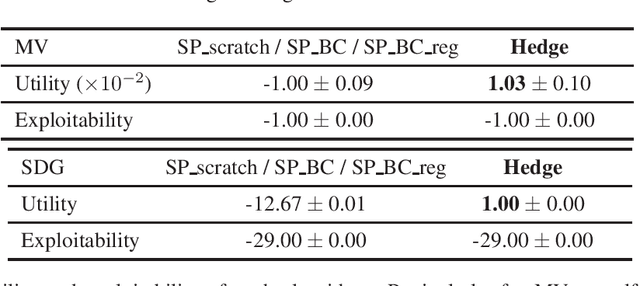Towards Principled Superhuman AI for Multiplayer Symmetric Games
Paper and Code
Jun 06, 2024

Multiplayer games, when the number of players exceeds two, present unique challenges that fundamentally distinguish them from the extensively studied two-player zero-sum games. These challenges arise from the non-uniqueness of equilibria and the risk of agents performing highly suboptimally when adopting equilibrium strategies. While a line of recent works developed learning systems successfully achieving human-level or even superhuman performance in popular multiplayer games such as Mahjong, Poker, and Diplomacy, two critical questions remain unaddressed: (1) What is the correct solution concept that AI agents should find? and (2) What is the general algorithmic framework that provably solves all games within this class? This paper takes the first step towards solving these unique challenges of multiplayer games by provably addressing both questions in multiplayer symmetric normal-form games. We also demonstrate that many meta-algorithms developed in prior practical systems for multiplayer games can fail to achieve even the basic goal of obtaining agent's equal share of the total reward.
 Add to Chrome
Add to Chrome Add to Firefox
Add to Firefox Add to Edge
Add to Edge